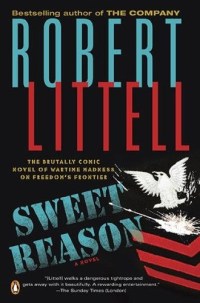Comrade Koba by Robert Littell
 Monday, November 9, 2020 at 6:44AM
Monday, November 9, 2020 at 6:44AM 
Published by The Overlook Press on November 10, 2020
Robert Littell has written some good spy novels, including Company and The Sisters. He’s also written some historical fiction that is less successful. Comrade Koba falls into the latter category.
Comrade Koba imagines a ten-and-a-half-year-old child named Leon Rozental whose father, a physicist, died from radiation poisoning. He’s living with his mother, a Jewish doctor, in Soviet housing. From a hidden room, he watches the NKVD arrest his mother. He later learns that she was arrested with many other Jewish doctors who are accused of conspiring to poison Stalin.
The NKVD seals shut the apartment door. Leon knows of hidden hallways that let him connect with other kids who have been effectively orphaned within the building. He also knows of a hidden tunnel that will let him leave the building unobserved to forage for food. While returning from one such trip, he notices another passageway that takes him to a basement room where he meets a grumbly old man who claims to be Stalin’s aide. As the man, who calls himself Koba, narrates his story to Leon, it quickly becomes clear to the reader that Koba bears a striking resemblance to Stalin himself. In fact, that question of identity arises so quickly that it isn’t a spoiler to mention it here.
So that’s pretty much the story. Leon listens to Koba every day and hangs out with is friends at night. Leon is a clever kid with a winning personality. Koba is Koba: unrepenting, blaming others for Soviet atrocities or blaming the victims who, in his view, had it coming. He certainly isn’t as nuanced as the book’s blurb suggests. The story is interesting and Littell’s dialog is rich and surprising, but it doesn’t add up to much. If the novel is meant to remind us that Stalin was evil and anti-Semitic . . . well, history reminds us of that.
Unlike history, the novel doesn’t ring true. A kid who wanders through tunnels accidentally encounters a Soviet dictator? Stalin secretly likes kids and wants one to write his biography? Stalin — as we learn at the end — has a sentimental side? I might have been willing to suspend my disbelief if Littell had written a meatier novel, but the rewards of Comrade Koba are too few to earn a full recommendation.
RECOMMENDED WITH RESERVATIONS



